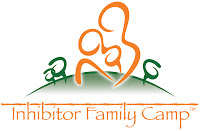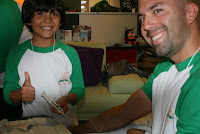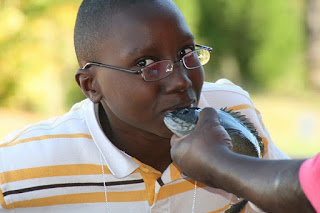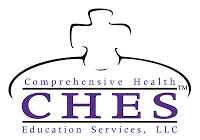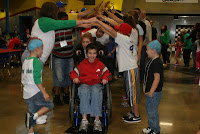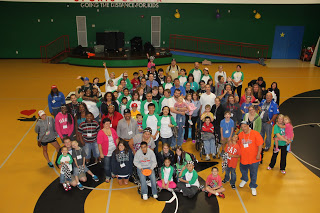Resources for People with Inhibitors
listened—really listened—to their challenges, I was blown away. First, by how
much they struggle: standard factor doesn’t work to clot the blood, different
treatment protocols sometimes fail, children are on prescription painkillers,
with ports and surgeries. Second, by how separated they were from the rest of
the community, shunned almost. “No one understands our challenges,” one mother
told me, “and when we share, they back away.” Hemophilia with inhibitors was
almost like a separate disorder. Third, I was amazed by how stoic and strong
these families are! And even more amazed by the lack of resources for them.
happy to say so much has changed in the US since 2005. We now have inhibitor summits,
financial aid programs, books, and even a camp! All for families with
inhibitors. At long last, our hemophilia community has embraced the inhibitor
families, and we’ve united.
I learned about the struggles of inhibitor families, I vowed to write a comprehensive
guide to dealing with and living with inhibitors—and I did! From the interviews
for Managing Your Child’s Inhibitor
emerged the need for a summer camp. A colleague took that idea and eventually
did just that. What will knowing the needs of the inhibitor community lead you
to do?
by ordering these free resources and enrolling in the patient assistance
programs. Having inhibitors is tough enough, but knowing there are colleagues
and professionals waiting to help you will ease the path forward.
comprehensive resource is the first and only book about inhibitors in the
world. From the parents’ and patients’ point of view, it extensively covers
topics such as pain management, surgery, family life, products, and treatment
regimens. Published by LA Kelley Communications, Inc. with funding by an
unrestricted grant from Novo Nordisk.
with hemophilia and an inhibitor. He manages his feelings by becoming a
Halloween superhero called the
hemophilia and inhibitors. For ages 4–7. Sponsored by Bayer HealthCare and
BioRX.
to meet and learn about their rare complication. Offers lectures from experts
in the field and interactive forums with parents and patients. National
Hemophilia Foundation (NHF) provides these summits only for people living with
inhibitors, covering most travel expenses for participants.
inhibitors, and their families. The full weekend of education, support, and fun
is held twice yearly, with camper costs covered. Funding provided by Novo
Nordisk Inc. Camp is designed and operated by Comprehensive Health Education Services.
PRODUCT ASSISTANCE
program for patients with hemophilia A, hemophilia A or B with inhibitors,
factor VII deficiency, acquired hemophilia, Glanzmann’s thrombasthenia, or
factor XIII deficiency, regardless of product choice. Replacing SevenSECURE®,
NovoSecure allows enrollees to apply for a variety of programs, including
Nordisk also offers product and copay assistance programs to eligible patients
who have been prescribed Novo Nordisk products.
and Education) to help patients take control of their healthcare needs through
insurance and product assistance. Copay or coinsurance support may be
available to reduce out-of-pocket costs associated with a Baxalta product.

